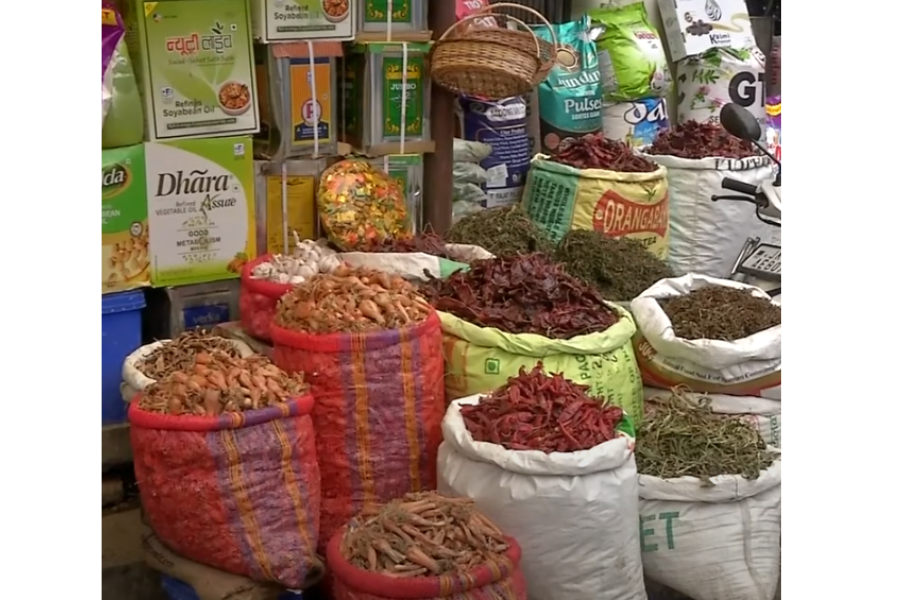Kashmir’s Sun-Dried Vegetables ‘Hokh Suen’ Keep Locals Nourished Amid Harsh Winters
‘Hokh Suen’: A Vital Part of Kashmiri Cuisine, Surging in Popularity This Winter
Srinagar, February 2, 2025 – Amid the biting cold and heavy snowfall that marks Kashmir’s harsh winter months, traditional sun-dried vegetables, known locally as ‘Hokh Suen,’ are experiencing a significant surge in demand. These dried vegetables are not just a staple in Kashmiri households but are deeply ingrained in the region’s centuries-old food culture, providing vital nourishment when fresh produce is hard to come by due to the disruptions caused by snowfall and landslides.
The practice of drying vegetables in the sun has been a time-honored tradition in Kashmir for generations. As the winter months approach, women in the region prepare for the cold season by drying a variety of vegetables, which are hung on the walls of homes, much like decorative garlands, to absorb the warmth of the sun. This technique ensures that these vegetables retain their nutritional value and can be stored for months, providing an essential food source throughout the harsh winter period when fresh vegetables become increasingly scarce.
In addition to being a rich source of nutrition, these sun-dried vegetables are believed to possess warming properties, helping families stay healthy and energized in the freezing temperatures. The most popular varieties of Hokh Suen available in local markets include Alae Hache (dried bottle gourd), Ruwangan Hache (dried tomatoes), Wangan Hache (dried brinjal), and Gogji Are (dried turnip). Each of these dried vegetables is carefully prepared and stored, ensuring they provide maximum nutritional value when fresh food options are limited.
Despite the region’s evolving food habits and the influx of modern convenience foods, Hokh Suen continues to be an essential part of Kashmiri cuisine. The demand for these sun-dried vegetables remains high, as they serve not only as a vital food source but also as a symbol of Kashmiri resilience and ingenuity. Even in the face of changing times, Hokh Suen has managed to retain its place in the hearts and kitchens of Kashmiri families, continuing to provide sustenance and warmth during the long, cold winter months.



